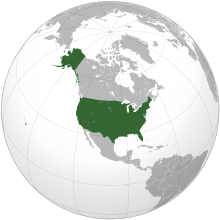The Next US Administration’s Top Five Foreign Policy Challenges – OpEd
By Other Words
By Lt. General (USA, Ret.) Robert G. Gard
Our next commander-in-chief will, as President Barack Obama joked during his final debate with Mitt Romney, spend little time fretting about the nation’s bayonet arsenal or herds of battle-ready horses. Instead, the White House will confront serious international challenges as it deals with Iran, Russia, Afghanistan, North Korea, and nuclear weapons.
Iran has indicated a willingness to engage in talks about its nuclear program after Election Day. Whether Obama or Romney wins, the president must pursue this opportunity to prevent another nuclear-armed nation, one that could potentially make the Middle East even less stable.

Obama coordinated crippling sanctions to bring Iran to the negotiating table. Either he or Romney should use this leverage to engage in productive talks with Iran to achieve a mutually acceptable diplomatic agreement and eliminate the need for a counterproductive military strike.
The success of sanctions against Iran depends in large part on Russian cooperation. That makes a cooperative relationship with Moscow key, but Romney has called Russia “America’s No. 1 geopolitical foe.” That assertion prompted a smile and a “thank you” from Russian President Vladimir Putin.
Romney clearly made an inaccurate overstatement. But Russia is an important international actor, particularly because it still possesses nearly half of the world’s nuclear weapons. In 2010, with bipartisan support, Obama ratified New START, a historic arms reduction treaty as part of a “reset” of relations with Russia that has secured its cooperation in providing logistical access to Afghanistan and in imposing sanctions on Iran.
However, since New START, U.S. relations with Russia have deteriorated. Moscow has used its veto in the Security Council to prevent international action on Syria and has clashed with Washington over our plans for missile defense in Europe.
The next president will have to engage in diplomacy with Russia to resolve these issues, while getting Moscow to agree on further arms control measures and a replacement for the Nunn-Lugar program, which has made it far more difficult for terrorists to acquire weapons of mass destruction.
As important as these issues are, the next administration’s top short-term challenge will undoubtedly be to end U.S. involvement in combat operations in Afghanistan. Both presidential candidates support a 2014 deadline, although they managed to make it sound during their debate that they disagreed on a basic exit plan.
About 68,000 U.S. soldiers, joined by 37,000 others from allied nations remain in Afghanistan, and are working to transfer security responsibilities to local forces. The actual troop strength is about double the official numbers because we have nearly 110,000 mercenaries and other private military contractors stationed there in addition to those troops.
Large turnover in Afghanistan’s security forces and a series of deadly “green-on-blue” attacks, in which Afghan soldiers are turning their weapons on Americans, are slowing the transition.
Plus, prospects for a stable Afghanistan are inextricably linked to Pakistan, with which U.S. relations remain tense. Our next president will need to contend with Pakistan’s support of insurgent groups who attack NATO forces in Afghanistan. Equally troubling is that Pakistan’s nuclear weapons arsenal is growing faster than any other. This is worrisome because of the potential for conflict between Pakistan and India, and terrorist activities within Pakistan.
Even as the next president grapples with the Middle East and South Asia, another dangerous nuclear challenge looms in North Korea under Kim Jong-Un, North Korea’s new leader.
Underlying all these challenges is the complex issue of preventing the further proliferation of nuclear weapons. The next president should take the lead at the 2015 Nuclear Nonproliferation Treaty Review Conference.
In 2009, Obama delivered a ground-breaking speech in Prague on nuclear weapons. He advocated the goal of a world without nuclear weapons, a dream that dates at least as far back as the Kennedy administration. The White House must work to reduce the threat of nuclear weapons.
This is hardly an exhaustive list of the international issues the next president will face starting in 2013. But he certainly will face the daunting task of prioritizing and dealing with these and other challenges when he isn’t tackling the nation’s many complex domestic economic and political problems.
Lt. General (USA, Ret.) Robert G. Gard is chairman of the board of the Center for Arms Control and Non-Proliferation, a member of the Council on Foreign Relations, and a former executive assistant to two Secretaries of Defense. www.armscontrolcenter.org

US-NATO leaving their failed war effects for PAKISTAN to clear in AFGHANISTAN is this why they came here for? We told them no1 could conqur AFGHANISTAN in the history do not go there but they came killed more innocent civilians than TALIBAN even crashed PAKISTAN with old allies TALIBAN which caused us 40,000 lives 70,000 injuries, $80 billion loss & a bad name to us.
The cowards are running back to rathole now.